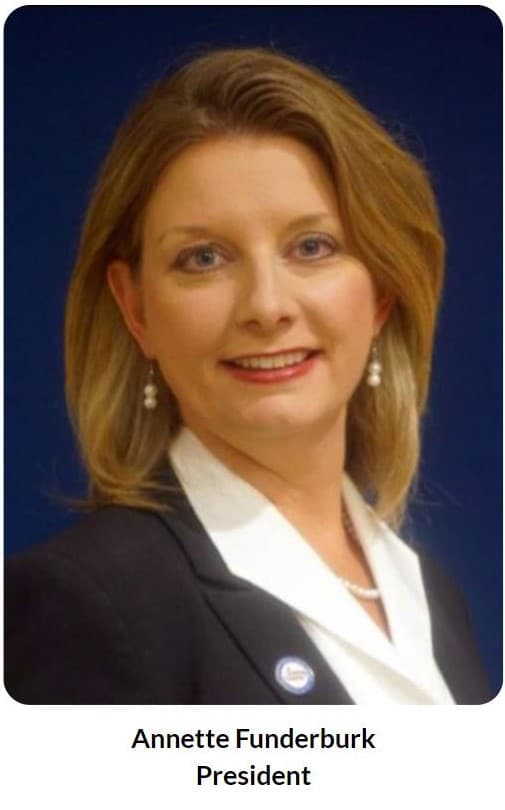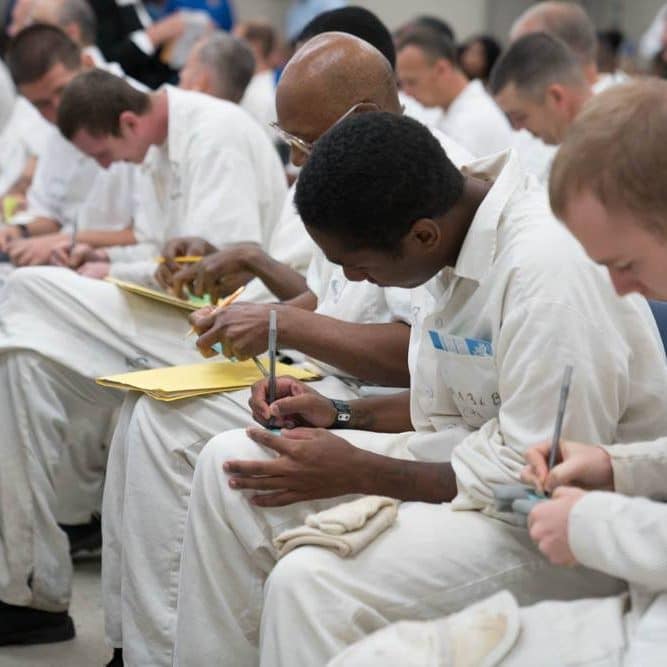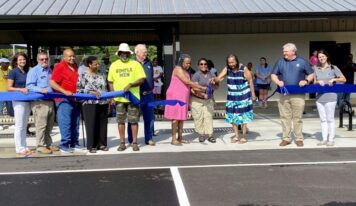FROM THE OFFICE OF GOV. KAY IVEY
PHOTO FROM ISTC FACEBOOK PAGE
Gov. Kay Ivey has awarded $93,885 for a program that helps link former prison inmates with employers after their releases.
J.F. Ingram State Technical College in Deatsville will use funds to continue pairing skilled inmates upon their release from prison with Alabama businesses who are seeking employees with those skills.
“Men and women are in prison because they have broken the law and have to pay the penalty,” Gov. Ivey said. “But those same people who have paid their debt to society and taken advantage of their incarceration to learn a trade have earned the right to become productive citizens once they are released. This program opens the door for new opportunities.”
Founded in 1965 J.F. Ingram State Technical College provides opportunities for inmates to learn skills in numerous high-demand fields including welding, automotive body repair, plumbing, HVAC, upholstery, carpentry and more.
The Alabama Department of Economic and Community Affairs is administering the grant from funds made available by the U.S. Department of Justice.
“ADECA is pleased to join with Gov. Ivey and J.F. Ingram in a program that pays for itself many times over with productive workers and turned-around lives,” ADECA Director Kenneth Boswell said.
Gov. Ivey notified Annette Funderburk, president of J.F. Ingram State Technical College, that the grant had been approved.
ADECA manages a range of programs that support law enforcement, economic development, recreation, energy conservation and water resource management.
A Message from ISTC President Annette Funderburk

Thank you for your interest in Ingram State Technical College, our students and our mission.
ISTC is part of the Alabama Community College System, fully accredited by the Council on Occupational Education for over 40 years. The College was established by the Alabama legislature in the mid-1960’s for the sole purpose of providing job training to incarcerated students.
For over 50 years, the faculty and staff have worked daily to meet that challenge, preparing students to make a successful return to family, community and the workplace.
Today ISTC is helping close the employment gap in Alabama by offering technical training in 17 career fields, adult education and GED preparation, and soft skills training essential for success in today’s workplace.
Our graduates are at work across the state, in businesses large and small, using skills they gained at ISTC. If you are interested in learning more about the College, if you would like information on hiring an ISTC graduate, or if you would like to join our foundation, we would be delighted to hear from you.
For more information about ISTC, visit their website at https://istc.edu/
From the Encyclopedia of Alabama –
J. F. Ingram State Technical College, located in Deatsville, Elmore County, was established by the Alabama Legislature in 1965 as J. F. Ingram State Technical Institute. The school was created to train incarcerated men and women in occupations that would prepare them for careers after their release. Today, the college has three major campuses located in Elmore County next to three correctional centers; the Main campus (Frank Lee Work Center), Draper/Staton campus (Draper Correctional Center), and the Tutwiler campus (Julia Tutwiler Center for Women). Ingram also administers programs that operate inside various correctional facilities. The school currently offers 19 different occupational training programs.
Ingram’s first facility was located on the grounds of Draper Correctional Center in Elmore. The college was named for John Fred Ingram, a nationally known pioneer in vocational education, who served as Alabama’s director of Vocational Education from 1957 until 1969. Ingram also had been president of the American Vocational Association in 1969. Maehugh T. Duncan was appointed as the school’s first director. He recruited a staff and established seven (7) programs that included plumbing, electrical, auto mechanics, masonry, welding, diesel mechanics, carpentry and adult education classes. These programs met the needs of the students, business and industry, and the Department of Corrections. New facilities, referred to as the “main campus,” were constructed in 1970 next to the Frank Lee Youth Center at Deatsville, approximately seven miles from the college’s original location. Growth and improvement followed a steady pace during these years. Beginning with cosmetology as its only occupational program, the Tutwiler facility of Ingram Tech was established on July 1, 1971, inside the Julia Tutwiler Prison for Women in Wetumpka, Elmore County. The following year, commercial sewing and floral design classes were added. Ingram was approved as a GED Testing Center in 1979. In 1982, Tutwiler added basic education and GED preparation classes and all vocational programs were moved from inside the prison compound to adjacent property belonging to Ingram Tech.
Upon Duncan’s retirement in January 1976, Murry C. Gregg was appointed to succeed him. In 1977, the school was accredited for the first time by the Commission on Occupational Educational Institutions (COEI) of the Southern Association of Colleges and Schools. In 1983, the Alabama State Board of Education (ASBOE) renamed the school J. F. Ingram State Technical College. The chief administrative officer was renamed “president” and enrollment increased dramatically, as did the physical facilities and faculty. Ingram reached record enrollments for successive quarters, and enrollment data for the summer of 1990 indicated that Ingram Tech had the largest enrollment of all technical colleges in the state. The Murry C. Gregg Learning Resource and Professional Development Center was completed and dedicated in 1990. The Center features state-of-art video production facilities as well as a comprehensive library for students and faculty.
In 1980, a U. S. Department of Education (USDE)-funded study ranked Ingram State Technical College as one of the top ten such institutions in the country. In 1986, another USDE study, “Education in Correctional Settings: A Guide to Developing Quality Vocational and Adult Basic Education Programs,” named the college as a model for correctional education. In 1985, the college was one of the charter members of the National Correctional Education Consortium, and Joseph M. Mulder, the college’s dean of instruction, was elected as its first president. After a short experimental period as a community college (1992 96), the Alabama State Board of Education returned the college to its traditional role as a vocational/technical and basic education institution. Today, it remains accredited by the Council on Occupational Education, the national organization that evolved from the regional COEI. In 1997, the ASBOE appointed J. Douglas Chambers as the second president of Ingram State Technical College. On June 8, 2012, Hank Dasinger became the third president.
Today, the President is Annette Funderburk.
Ingram State Technical College is a member of the larger Alabama Community College System. Ingram State offers 19 certificate programs ranging from automotive mechanics to welding and three degree programs in drafting and design, office information systems, and heating, ventilation, and air conditioning. The college has extensive support service projects, student recognition programs, and job placement assistance programs. Upon their release, students are allowed to transfer credits to other two-year technical colleges in Alabama.
In 2009, the college formed a partnership with Community Education Centers Inc., a private prison rehabilitation company based in New Jersey, and the Alabama Department of Corrections. This partnership offers therapeutic counseling and vocational/occupational courses along with adult education classes to incarcerated men and women who are eligible for work release programs. In 2011, construction began on a new horticulture building on the college’s main campus. Graduates can obtain certificates in various horticulture specialties, including landscape maintenance, construction, and design and irrigation systems.






